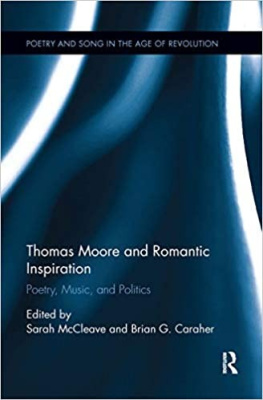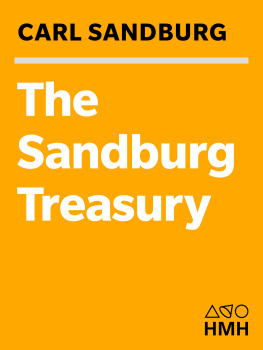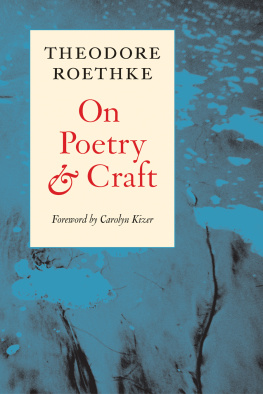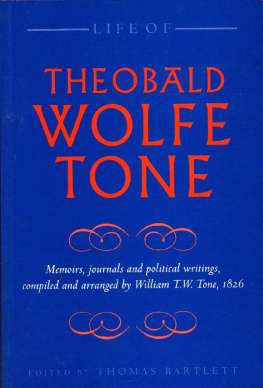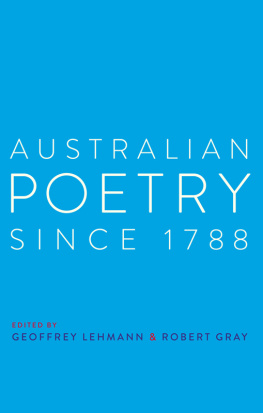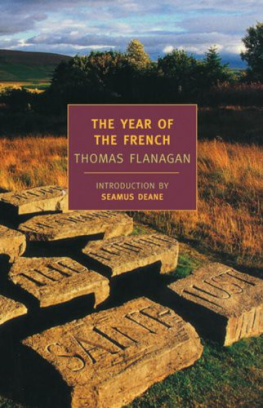All rights reserved. No part of this publication may be reproduced in any form or by any means without the prior permission of the publisher.
First published 1998 by
The Lilliput Press
6263 Sitric Road,
Arbour Hill
Dublin 7, Ireland
www.lilliputpress.ie
This digital edition published 2013 by
The Lilliput Press
Copyright Padraic OFarrell
ISBN print edition 1 901866 03 3
ISBN eBook 978 1 84351 512 8
A CIP record for this title is available from The British Library.
The Lilliput Press receives financial assistance from
An Chomhairle Ealaion / The Arts Council of Ireland

The 98 Reader
Padraic OFarrell
THE LILLIPUT PRESS
DUBLIN
To Niamh and John
Acknowledgments
I thank Antony Farrell of Lilliput Press for accepting this idea and going through with it. Thanks also to his editor, Brendan Barrington, publicist, Siobn, and Vincent Hurley, who assisted greatly in suggesting material and advising on sources. I wish to thank the Librarians and staffs of the National Library of Ireland and county libraries of Westmeath, Wexford, Meath and Kildare for continuing assistance; the Department of Irish Folklore at University College, Dublin, Professor Bo Almqvist and Eagarthoir, Baloideas for permission to quote the account of the Swearing of Billy Byrne and of The Battle of Ballinamuck; Gearid OBrien and Sen Rioghbardin for their interest and help; my daughters, Niamh and Aisling for word-proccessing and my wife, Maureen, for proof-reading.
Foreword
Simply to read the list of contents could be the best introduction to this remarkable, and most moving and informative anthology. It treats only of one year in our Irish history but that was a momentous, and significant year and Padaic OFarrell allows it to speak, and to sing and recite for itself. I bow before the research work he has done, and the wisdom and lucidity with which he presents his findings.
He sets out from the Church of Dungannon. He gives us the declarations and resolutions made and signed by Wolfe Tone. It is good to look again on that vision and, in this year, to brood over all that went wrong. And if you are a Tyrone man you know that you, or somebody belonging to you, was around for the Battle of Diamond. Then, aided by Teeling, off we go to Bantry and fail, sadly, to encounter Hoche.
There are so many people all around us, the Bold Belfast Shoemaker, and John and Henry Sheares and Napper Tandy. And we pass by the Battle of Prosperous and may meditate on quiet lovely green places that once were bright with steel and dark-red with blood. And these pages give us the comments of the time, much of it wise, much of it fatal.
But the most moving moment in this great boook came, personally, for me when I came to a series of poems of, or related to, the period. The procession began with Florence Wilsons The Man from God Knows Where, which when I was a boy I recited, every word of it, at a concert in Omagh Town Hall. Fond memories. I survived. Then after that, but in this this great book, comes A Song of the North by Brian naBanban, who was Brian O Higgins, father of the Abbey actor, and he and all his family were clear friends of mine. Then comes James Orrs, Donegore Hill, and P.J. McCalls, Henry Joy, and Ethna Carberys, Roddy McCorley. And on to Alice Milligan, that great lady, meditating on that same fatal year.
And I recall the day, say sixty years ago, when a notable Ulster clergyman, Fr Paul Mackenna, brought me from Omagh town to an old mansion on the fringe of Mountfield village. And he stood at the door and called: Alice, where art thou? And the aged poetess came forth. And I, being middling young, felt I was back in 1798.
Benedict Kiely, April 1998
Preface
Just a few weeks of actual combat. Some of the engagements were mere skirmishes, others fierce and bloody. Yet the rebellion of 1798 has inspired more song, prose and poetry than many more significant and strategically conclusive campaigns.
The songs are most remembered. Rural Irish people now in late-middle or old age learned them as children. They did not stop to think of their blood-thirsty lyrics. Fertile young imaginations grasped the imagery of each stanza with fervour. Young arms plucked ash-plants from hedges and fashioned make-believe pikes. Every stream was the Slaney, each high rise was Vinegar Hill. Kelly the Boy from Killane and Father Murphy, each scarcely four feet tall, fought their way across bracken and heather. That was because Wexford had the most stirring selection of ballads.
Only in later years, when history had become a school subject, did they learn about the rising in the North, about Humbert in Killala. Then they remembered their fathers and mothers singing songs or reading poems about those episodes too: Henry Joy or The Men of the West.
The Second World War, with Vera Lynn and her White Cliffs of Dover and Jimmy going asleep in his own little room again, pushed the airs of 98 aside. The Shores of Tripoli opened the way for American songs. They are still with us!
The prose and poems included here give a more sober view of strife and warfare. Some are included with reluctance, even apprehension, because they tell of sectarian atrocities that are still occurring in part of Ireland, sometimes of similar nature and in the same locations. Because they are of an era in which warfare and violence were acceptable methods of securing rights, they incite and call for continuing strife.
They remind that no account of the rebellion is complete without starting long before 1798 and ending some years after. A chronology, therefore, supports this collection. It begins with the formation of the Volunteers in 1778 and ends with Michael Dwyers surrender in 1803.
Early, Early, All in the Spring 1778-96
of stirrings of organizations of personalities of bantry of oaths
Of Stirrings
A heady awareness of French-inspired republicanism fomented resentment to government brutality and opened the path to bloody and dramatic rebellion. English born American, Thomas Paine (1737-1809) wrote The Age of Reason (London 1794) and defended the French Revolution in The Rights of Man Being an Answer to Mr Burkes Attack on the French Revolution (Dublin 1791). Those who embraced his ideals (for which he was imprisoned briefly in Paris) were called Painites. Paines doctrine, with its heady rhetoric like My country is the world and my religion is to do good, was seized upon by a people deprived of their rights.
the rights of man
Anon.
This song was first printed in Paddys Resource, a collection of revolutionary ballads, written by United Irish members and sympathizers, published in Belfast in 1795 and re-issued in 1796. An expanded edition was printed in Dublin in 1798 Drennans Wake of William Orr and the anonymous song Edward come from this later edition. The book was published in Philadelphia in 1796 and New York in 1798. Many United Irish sympathisers emigrated or fled to the newly established United States during the 1790s.
I speak in candour, one night in slumber
My mind did wander near to Athlone,
The centre station of this Irish nation
Where a congregation unto me was shown.
Beyond my counting upon a mountain
Near to a fountain that clearly ran,
I feel to tremble, Ill not dissemble
As they assembled for the rights of man.
All clad in green there I thought I seen
A virtuous Queen that was grave and old,
Saying Children dear, now do not fear
But come and hear what I will unfold.
This fertile country, near seven centuries
Since Strongbows entry upon our land,
Has been kept under with woes un-numbered
Next page



